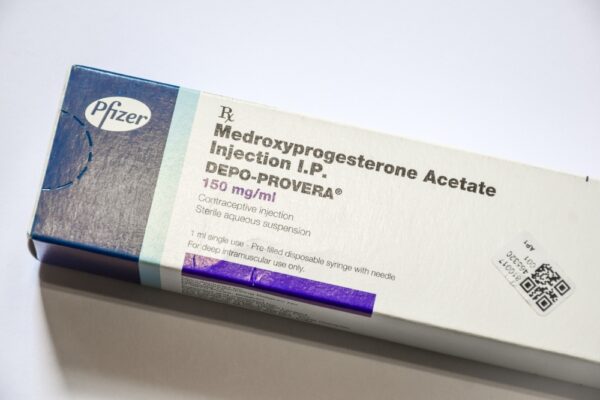Once again, more clinical research is associating Injectafer (chemical compound: ferric carboxymaltose) with the dangerous and potentially life-threatening condition Severe Hypophosphatemia (Severe HPP). A new study just released in the February edition of the highly respected, peer-reviewed Journal of the American Medical Association (JAMA) reports two clinical trials showing that the IV-infused iron-deficiency anemia drug, Injectafer, carries an exponentially higher risk of Severe Hypophosphatemia and Persistent Hypophosphatemia (still occurring at the 35-day mark) than its competitor, Monofer (chemical compound: iron isomaltoside).
In two randomized controlled trials, 245 total patients with iron-deficiency anemia were administered 1000 mg iron isomaltoside on day 0 or 750 mg ferric carboxymaltose on days 0 and 7. For purposes of the study, Hypophosphatemia equaled serum phosphorous levels below 2.0 mg/dL, and Severe Hypophosphatemia equaled serum phosphorous levels below 1.0 mg/dL. The trials were conducted over 35 days. The studies found:
- In Trial A (123 patients), the incidence of Hypophosphatemia (HPP) with use of Monofer was only 7.9%, compared with 75% in Injectafer patients;
- In Trial B (122 patients), the incidence of HPP with use of Monofer was only 8.1%, compared with 73.7% in Injectafer patients
- In both trials, the prevalence of HPP peaked on Day 14 in Injectafer patients and remained significantly higher at Day 35 than in Monofer patients;
- Severe HPP (serum phosphorous below 1.0 mg/dL) was not observed in Monofer patients but occurred in 11.3% of Injectafer patients.
This is just the latest in a pile of studies that support the claim that Severe HPP, a potentially dangerous phosphorus deficiency, is a serious, ongoing, and clinically significant side effect to taking Injectafer.
Additionally, the study found that Injectafer’s downstream metabolic consequences may have significant effects on patients’ bones. The study authors wrote that even a single course of Injectafer may adversely affect a person’s skeleton, which may help explain why Injectafer has been associated with osteomalacia and bone fractures.
Injectafer was developed to rapidly correct iron-deficiency anemia. While the medication may effectively correct iron-deficiency anemia, there remains no warning of the possible side effects of Severe Hypophosphatemia. Severe HPP can cause severe and prolonged fatigue and muscle weakness, rhabdomyolysis, heart failure, respiratory failure, osteomalacia and other bone-weakening conditions.
Due to the overwhelming evidence that Injectafer is unsafe for patients, Pogust Millrood filed the nation’s first lawsuit against the pharmaceutical companies responsible for Injectafer and continues to file more. The lawsuits are currently moving forward and the firm intends to hold Injectafer manufacturers accountable for the pain and suffering that their negligence has inflicted on innocent patients’ lives.
If you or someone you know has experienced Severe Hypophosphatemia (HPP) symptoms after taking Injectafer, call Pogust Millrood toll free at 888-348-6787, or direct to the Pennsylvania office at 610-941-4204, to see if you are entitled to seek damages.

A Pennsylvania native, Mike Daly has spent most of his life in the greater Philadelphia area. A proud graduate of Penn State and the Villanova School of Law, he's currently a partner at Pogust Millrood, where he represents individuals throughout the country in class action and mass tort claims involving consumer fraud, environmental harm, defective medical devices, and harmful pharmaceuticals.

















Comments for this article are closed.